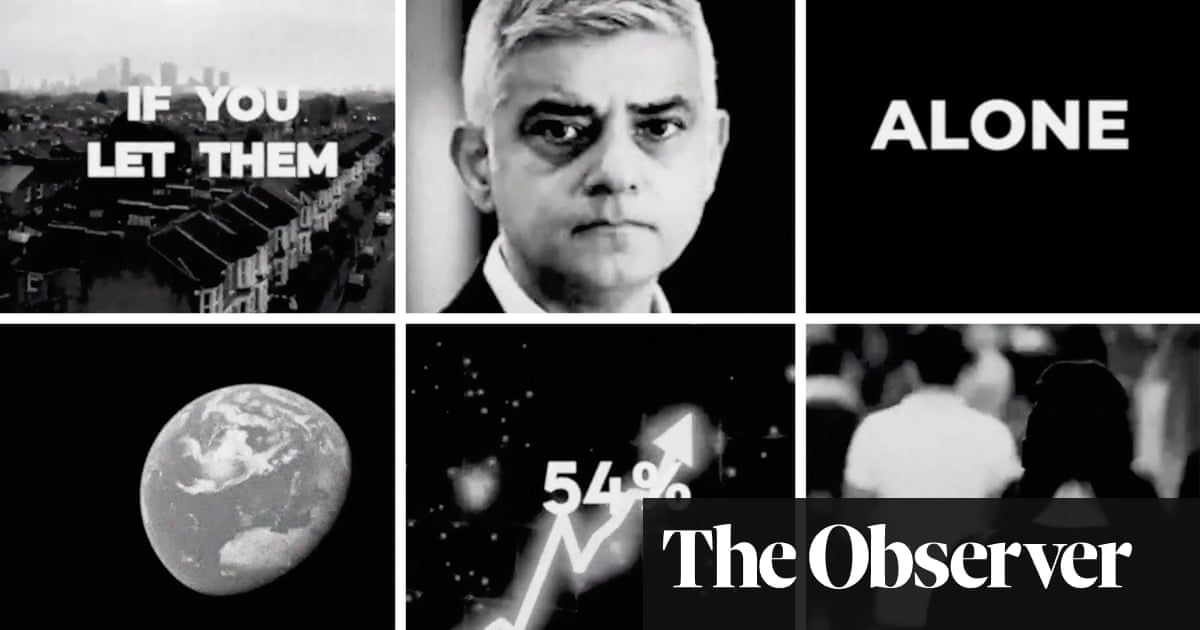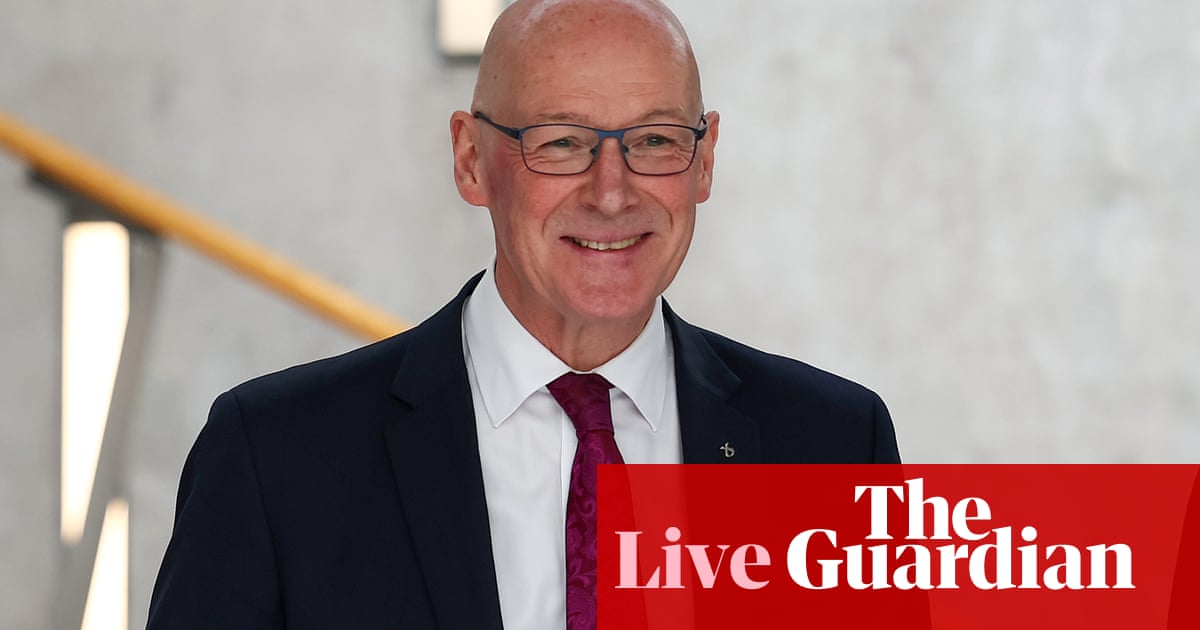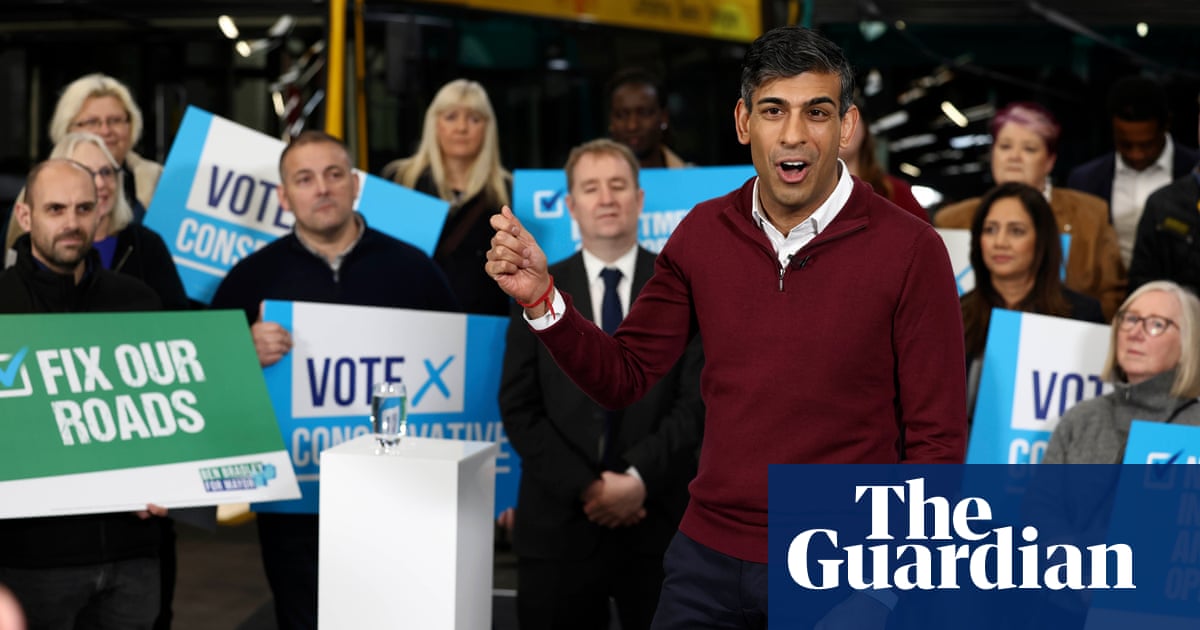Cleaners, builders, Primark shoppers: ads for London mayor hopeful Susan Hall reveal Tories’ targets | Social media


Are you a cleaner or builder who likes Primark, the pub or reality TV – but doesn’t care about the environment? If yes, the Conservative party wants your vote.
These are some of the interest categories used by the campaign team for the Tories’ candidate for London mayor, Susan Hall, to target audiences on social media.
The content being pushed to them includes Facebook and Instagram adverts portraying London as a no-go zone, with footage of a gang robbing a shop alongside the claim that crime in the capital is “out of control”.
Other ads play on fears about Ulez, promoting claims that the Labour mayor Sadiq Khan is rolling out “secret” technology in a plan to expand the scheme.
As well as being pushed to people who have been profiled by Facebook as being interested in “cleaning services” or “construction”, the ads have been promoted to those who like rugby league, cosmetics and home security. They are predominantly being targeted at older audiences, particularly the over-50s, and also to some parents.
But they are being hidden from those profiled as being interested in “free public transport”, “social change” and environmental issues, the Observer has found – and are rarely being shown to under-35s.
The targeting – using “interests” and “behaviours” ascribed to people by Facebook based on their social media and other web activity – is revealed after a week in which the Conservative party was forced to withdraw a controversial video that claimed Khan “seized power”, and portrayed the city as a crime capital after it mistakenly used scenes from a stampede at a New York subway station.
The video, posted on the party’s official social media pages, was set to dramatic music, had a sinister-sounding voiceover and leaned into conspiracy theories, including claiming there were “squads of Ulez enforcers dressed in black terrorising communities at the beck and call of their Labour mayor master”.
The ads now being pushed by the party mostly come from a campaign page set up on Susan Hall’s behalf. Since it launched last month, the “Sadiq Khan Won’t Listen” page has run 116 anti-Khan ads which altogether have been seen about 3.58m times. In the last 30 days alone it has spent £9,300 – almost as much as the £10,525 spent via Hall’s official Facebook page in the same period.
Many of the ads echo the style of the attack video that made headlines earlier in the week, with black and grey graphics, music and voiceovers. It is not always immediately clear they come from Hall’s campaign. They are marked as being paid for and promoted by the Conservative party – which Labour said cast doubt on Hall’s claim her team operates separately from Tory HQ.
Ben Collier, a lecturer in digital methods at Edinburgh University, said the targeting raises questions about transparency and the use of stereotypes in political profiling.
He said the messaging seemed designed to “try to activate particular communities” and in some cases appeared to lean into misinformation – while the keywords used to target certain voters were “very odd”. “It’s interesting when you look at the lists of keywords they use because you get a bit of an insight into how they see the particular demographic they’re trying to target,” he said.
Collier added that while it was “completely normal practice” for commercial advertisers to target their ads, doing so for political ads raised “real issues with transparency”, because the ads may not be seen by a wide audience and so were harder to scrutinise. He added that targeting people via third parties – such as by aiming ads at “friends of football fans” – raised “serious issues of consent”.
Mark Palmer, a PR expert who has advised political candidates, likened the approach to the “Trump playbook”, and said manipulative targeted advertising was being used in an attempt to push emotional content to certain groups.
The labels picked by the Conservatives for their anti-Ulez messaging appeared to be being used to reach those who were more likely to have a car or to be older, and who therefore were more likely to “get angry”, he said. “It’s about button-pushing issues. So you look for what winds people up or gets them to act.”
Data from Facebook’s ad library shows that as well as using stereotyped interests and jobs to target working-class people, a smaller number of ads were targeted at people interested in luxury bags, horse-riding, ballet and the opera.
Labour’s primary campaign pages for the mayoral race do not appear to use keyword targeting but have targeted people based on postcode.
after newsletter promotion
As well as funding ads on Facebook and Instagram, both parties have paid for Google ads attacking their rival candidates, which show up under searches for each of their names. People searching “Sadiq Khan crime” are redirected to a Tory attack website. Those searching “Who is Susan Hall?” are shown an ad describing her as a “hard-right Tory candidate” who “hates London’s diversity” and directed to a website set up by Labour in her name, susanhall.uk.
Conservative activists, meanwhile, are routinely posting in grassroots anti-Ulez Facebook groups to try to rally support for Hall, the Observer has found. They include a local campaigner who in the past four days has shared 10 posts in a single Ulez Facebook group criticising Khan and imploring members to vote for Hall.
It is unclear whether the attempts to mobilise members of grassroots campaigns are linked to Tory HQ. However disclaimers on Hall’s official adverts and campaign materials say key members of her campaign team include staff based at the Conservative headquarters, including Brian Jarvis, who is described as the party’s head of field for London.
According to Jarvis’s LinkedIn, he led the Uxbridge byelection strategy in which the Conservatives narrowly defended their seat following Boris Johnson’s resignation in a campaign which played heavily into anti-Ulez messaging. Jarvis’s LinkedIn adds that he has experience “delivering campaign successes across the capital, focusing on the use of social media marketing to deliver electoral success against the odds”.
A post in one anti-Ulez Facebook group, attacking Khan and promoting Hall, suggested Jarvis may have had contact with members. “We have Brian Jarvis in support, who overturned the Uxbridge result on a Ulez ticket,” the group member wrote. He went on to urge the network’s “200,000 assorted Ulez haters” to oust Khan by voting for Hall, adding: “All we have to do is register and vote in May and the nasty little liar is gone with the wind.”
Jarvis did not respond to a request for comment. Collier, the lecturer in digital methods, said some of the anti-Ulez messaging in Hall’s campaign appeared to be “piggybacking on a set of misinformation campaigns coming from hostile actors that are trying to stir people up” by suggesting Ulez is part of a new world order and that Khan is controlled by “puppet masters”. “It’s a dangerous thing to do, because that group is a tinderbox at the moment,” he said.
Palmer, the PR consultant, said the findings showed the need for better regulation of political advertising online. While it is a crime to make a false statement about the personal character of a candidate, there are few restrictions on other claims made in political advertising. Unlike commercial adverting, political advertising is not overseen by the Advertising Standards Authority.
“They’re allowed to do stuff in politics that you’re not allowed to get away with if you’re doing general advertising,” Palmer said. “Not only are they adding all that targeting on it, but then on top of that, there is no real regulation of it. It falls into a vacuum.”
Meta, Facebook and Instagram’s parent company, said that since the Cambridge Analytica scandal it had introduced industry-leading transparency tools “enabling anyone who’s interested to scrutinise how campaigns and candidates are spending their money”.
The Electoral Commission said political parties and campaigners were required to label digital ads with an “imprint” detailing who is behind them. It added that its remit “does not extend to the content of campaign material, its veracity or accuracy” and that this was “not subject to regulation by any UK body”.
There are also questions for Labour over its spending via the official mayor of London Facebook page. Analysis by Who Targets Me, which monitors political advertising, shows it spent £10,000 per day on ads in the lead-up to the pre-election period, including ads promoting a mentoring scheme and another featuring a video of Khan captioned: “The action we’ve taken to tackle crime is truly unprecedented.”
Sam Jeffers, who runs the group, said it was “not unusual” to see government accounts “splurge like this” in the run up to a pre-election cutoff before the spending “suddenly drops to zero”. He said there were “no rules to stop it”. “Distribution of important public information? A quirk of the system? Cynical political use of public money? It’ll depend who you’re talking to,” he said.
Source link




